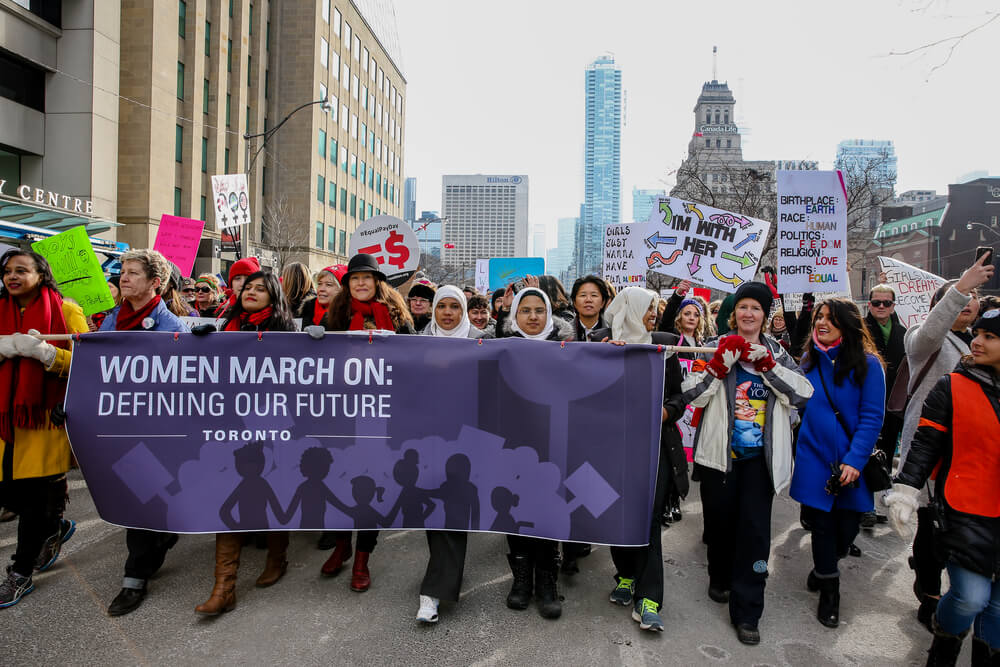What do Iceland, Mexico and New Zealand have in common?
On at least one fundamental measure they’re more democratic than Canada. That’s because in recent years they’ve adapted their political systems to ensure that women’s perspectives and experiences are meaningfully reflected in government decision-making.
All of them are at, or very close to, achieving gender parity in politics. Along with dozens of other nations around the world, they’ve taken steps to guarantee that women occupy half the seats in their nations’ parliaments.
Canada, meanwhile, is losing ground. Twenty years ago, we ranked 27th for women’s participation in elected office. Now we’re 60th. And Canadians recently polled by Abacus are not impressed.
Eighty-five per cent believe that equal numbers of men and women at all levels of government more effectively supports elected officials to represent the views of the citizens they serve. Canadians recognize that such a balance of power would be good for communities and our economy.
A raft of peer-reviewed research backs this up. The status of women in a country is among the most predictive indicators of economic growth. It is seriously old news that societies benefit when women’s realities and concerns, our insights and solutions, are integrated into and help shape public policies and priorities.
So how do we fix this?
Unsatisfied with the kind of incremental change we’ve settled for, the countries around the world that have made the most progress have taken deliberate steps to overcome entrenched barriers. More than 80 nations have set minimum targets for women’s representation and tasked political parties with meeting them.
In Europe, Latin America and the Caribbean, gender parity is widely seen as a matter of fairness. As for the three countries cited above, Mexico reached 50 per cent through constitutional reform and by focusing on the importance of ensuring women candidates are run in ridings that parties have a chance of winning. In both Iceland and New Zealand, political parties embraced voluntary gender quotas.
The “q” word will predictably send some critics spinning; they’ll argue that specifying gender-balanced rosters will interfere with riding contests that surface “the best people.” But research by Canada’s Samara Centre for Democracy found that a mere 17 per cent of federal candidates between 2004 and 2019 emerged through such competitions.
Parties are already appointing more than four out of five candidates and clearly, most of them are men.
Interestingly, when asked who’s responsible for increasing gender parity in politics, Canadians say it’s up to political parties to recruit a diverse set of candidates, and up to governments to create policies to ensure parliament and legislatures genuinely represent their citizens. Only one in five or fewer respondents feel that it’s up to women to run or that voters need to elect more women.
A majority of those canvassed also agreed that women who stand for political office face greater criticism than their male counterparts. This perception is supported by studies documenting that women are attacked more often, and on personal rather than professional or policy grounds.
Notwithstanding the absence of constitutional reform or hard targets here, the Abacus poll suggests that Canadians are saying “no” to the status quo. They believe those in power have the means to achieve gender parity in politics and they expect them to act.
In our own bid to support meaningful change, Informed Opinions is currently developing a resource to compare the routes other countries have taken to achieve a balance of power. We’ll be drawing on the advancements of Mexico, Iceland and New Zealand, as well as many others, in identifying solutions to women’s persistent under-representation here.
Representation is a prerequisite for democracy. Canadian women deserve as many seats at the table as men to exercise a balance of power.
Photo courtesy of DepositPhotos



